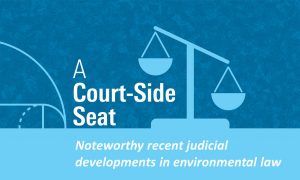 Empty office buildings downtown. A housing shortage in almost every major market. Is there a way to address both issues at once by converting historic but underutilized office buildings into apartments and condos in city centers? It’s an idea that has been discussed, and in some cities, implemented in recent years. But while the idea seems simple enough—repurpose existing office space for residential and mixed-use projects—there are some real challenges limiting the feasibility of large-scale office to residential conversion.
Empty office buildings downtown. A housing shortage in almost every major market. Is there a way to address both issues at once by converting historic but underutilized office buildings into apartments and condos in city centers? It’s an idea that has been discussed, and in some cities, implemented in recent years. But while the idea seems simple enough—repurpose existing office space for residential and mixed-use projects—there are some real challenges limiting the feasibility of large-scale office to residential conversion.
CHIPS Act Funds Start to Flow
On February 28, 2023, the first funding opportunity opened under the Creating Helpful Incentives to Produce Semiconductors and Science Act (CHIPS Act), federal legislation that appropriated $52.7B in federal funding to boost the semiconductor industry, including $39B in semiconductor manufacturing incentives. Projects involving construction, expansion or modernization of commercial facilities to produce leading-edge, current-generation and mature-node semiconductors are now eligible for funding.
Real Estate & Construction News Roundup (03/08/23) – Updates on U.S. Mortgage Applications, the Inflation Reduction Act, and Multifamily Sector
This week’s roundup explores the cooling housing market and plummeting mortgage applications, potential tax-savings as a result of the 2022 Inflation Reduction Act (IRA), and new developments in the multifamily sector.
Real Estate & Construction News Roundup (03/01/23) – Mass Timber, IIJA Funding and Distressed Real Estate
This week’s roundup explores how Infrastructure Investment and Jobs Act (IIJA) funding is being deployed, mass timber is on the rise as decarbonization efforts continue, and commercial real estate remains distressed.
“Groundbreaking” SEC Complaint Accuses Oil Major of Greenwashing Its Investment Reporting
In a “groundbreaking” complaint, environmental NGO Global Witness asked the Securities and Exchange Commission (SEC) Climate and ESG Task Force to investigate oil major Shell for possible violations of federal securities laws. The complaint, filed this February, alleges Shell misled its investors by including some of its gas-related spending in its “Renewables and Energy Solutions” (RES) reporting segment. Global Witness claims that, while Shell reports spending 12% of its annual expenditures on RES ($2.4 billion), removing expenditures related to integrated power, hydrogen, and carbon capture and storage reduces that percentage to only 1.5% ($288 million).
OMB Revisions to Implementation of Build America, Buy America
The Office of Management and Budget (OMB) recently proposed new regulations regarding the use of domestic construction materials, which, among other things, identify what items will be considered construction materials and the process for determining whether they are of U.S. origin.
In “OMB Proposes Revisions to Guidance Supporting the Implementation of IIJA’s Build America, Buy America Act Provisions,” colleagues Marques O. Peterson and Stephan E. Becker take a closer look at these regulations.
A Court-Side Seat: Hog Catching, “Hard Looks” and Hardship Exemptions
If “Winter comes, can Spring be far behind?” It’s been a quiet term thus far for the Supreme Court, due in part to the hearing of oral arguments in many contentious cases. Below is a brief summary of some of the recent significant matters decided by the Federal Courts.
Real Estate & Construction News Roundup (02/15/23) – Proptech Solutions, Supply Chain Pivots, and the Inflation Reduction Act
This week’s roundup explores how proptech could alleviate the financial burden of property owners’ vacant office space, manufacturing firms are bolstering the industrial real estate sector, a 200-MW Texas project is first to leverage IRA tax credit for stand-alone energy storage, and more.
Something to Build Toward: 2026 World Cup Will Bring Fresh Round of Investment in Major Cities
 Although the 2022 Men’s FIFA World Cup concluded less than six weeks ago, plans are already being laid for the next iteration of the tournament, which will take place in cities across North America. The United States, Canada and Mexico won their joint bid to host the 2026 Men’s World Cup, which is returning to North America for the first time since the U.S. hosted the tournament in 1994. In June of 2022, FIFA—the international governing body for the sport of soccer—announced the 16 cities which will play host to the tournament.
Although the 2022 Men’s FIFA World Cup concluded less than six weeks ago, plans are already being laid for the next iteration of the tournament, which will take place in cities across North America. The United States, Canada and Mexico won their joint bid to host the 2026 Men’s World Cup, which is returning to North America for the first time since the U.S. hosted the tournament in 1994. In June of 2022, FIFA—the international governing body for the sport of soccer—announced the 16 cities which will play host to the tournament.
Real Estate & Construction News Round-Up (02/08/23) – The Build America, Buy America Act, ESG Feasibility, and University Partnerships
This week’s round-up explores President Joe Biden’s recent State of the Union address and plans for the Build America, Buy America Act, the feasibility of real estate companies achieving their ESG goals, and how developers, lenders, and tenants are partnering with universities to solve real estate challenges.





